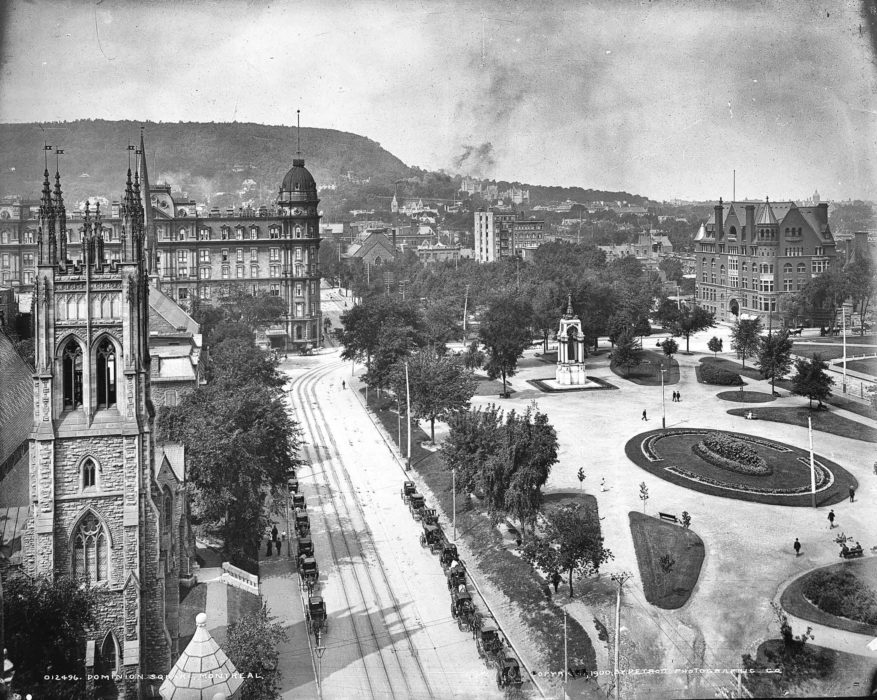IT WAS A DRY and warm evening; a necessary break from the three days of steady Montreal rain. On September 5, 1912, ‘Abdu’l-Bahá gave a talk at St. James Methodist Church, located on the north side of rue Sainte-Catherine and west of de Bleury. The church was called the “Westminster Abbey of Canada,” due to its Gothic Revival architecture and large, circular window of tracery. In contrast to its old-world design, an electric illumined sign outside the church read: “This evening the Prophet of the East will speak on the principles of the Bahá’í Faith and the salvation of the world of humanity.” ‘Abdu’l-Bahá’s talk would similarly address a convergence of the old and the new.
“So people are calling me a prophet,” ‘Abdu’l-Bahá said, when he saw the sign as he approached the church, and the meaning of it was translated for him. “Oh, would that they had omitted that word!” ‘Abdu’l-Bahá’s talk that night would clarify the matter: his father, Bahá’u’lláh, was the prophet. Bahá’u’lláh appointed his son to interpret and clarify his teachings after his passing.
The Reverend Herbert Symonds chaired the gathering. His views were controversial: he insisted that the teachings of Christ had to be renewed in every age to address contemporary concerns, and encouraged interchurch collaboration.
‘Abdu’l-Bahá explained that Bahá’u’lláh’s religion “embodies completely the teachings of all the Prophets, expressed in principles and precepts applicable to the needs and conditions of the modern world, amplified and adapted to present-day questions and critical human problems.” He told them Bahá’u’lláh’s words “are the very spirit of the age and the cause of the unity and illumination of the East and the West.”

He went on to argue how his father’s most important principles constitute the modern mission of religion: that each individual must investigate reality for themselves, not relying on experts, priests, or gurus; that humankind is a single race and should live accordingly; that “religion must be the mainspring and source of love in the world,” for it is “the revelation of the will of God”; that “religion must reconcile with science and reason”; the elimination of all forms of prejudice; the need to draw on human spiritual powers to rise above the condition of the animal; the responsibility for providing education to all children; the establishment of universal peace through international agreement; the equality of rights for men, women, and all of humanity, and the establishment of an international language.
Perhaps it was unexpected that a voice calling for modern religion came from the East. ‘Abdu’l-Bahá argued that religious truth must change along with the evolving needs of society. Rather than deny the existence of a creator, or the benefits religion had given humanity, ‘Abdu’l-Bahá spoke of the need for a reformation so that modern religion could meet the needs of an increasingly complex world.
Mr. Riger, a judge who had just heard ‘Abdu’l-Bahá speak for the first time, stood and said: “Some have imagined that the succession of the Prophets and the bounties of God were limited. But tonight we have heard with our own ears these divinely ordained teachings from an Eastern prophet who is the successor of the Prophets of God. We will never forget his message.”
The Reverend Symonds agreed. “It is an error,” he said, “to think that the West has attained perfection and that the East has no bounties or teachings to offer to the West. ‘Abdu’l-Bahá has said many things which we have not heard before or understood.”
As for the weather, the dry Thursday came too late, and, that night, ‘Abdu’l-Bahá caught a cold.






